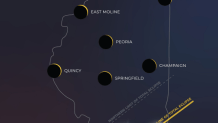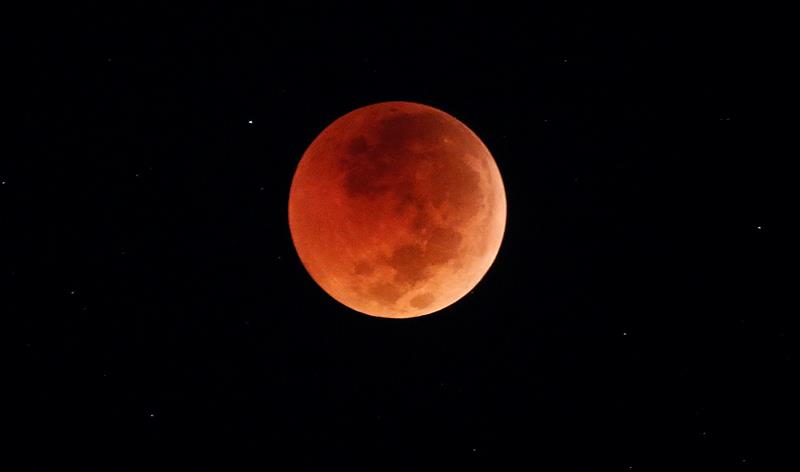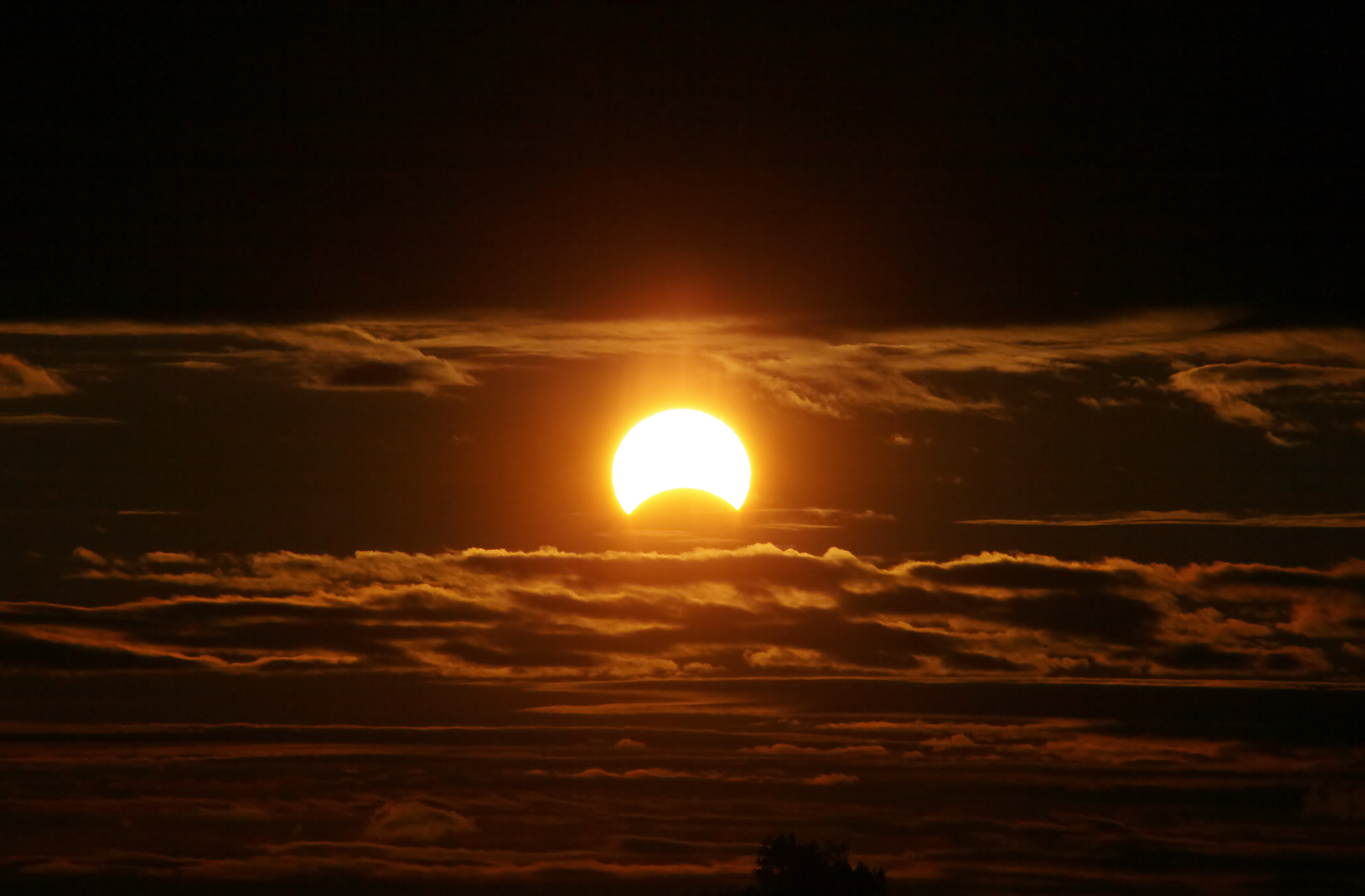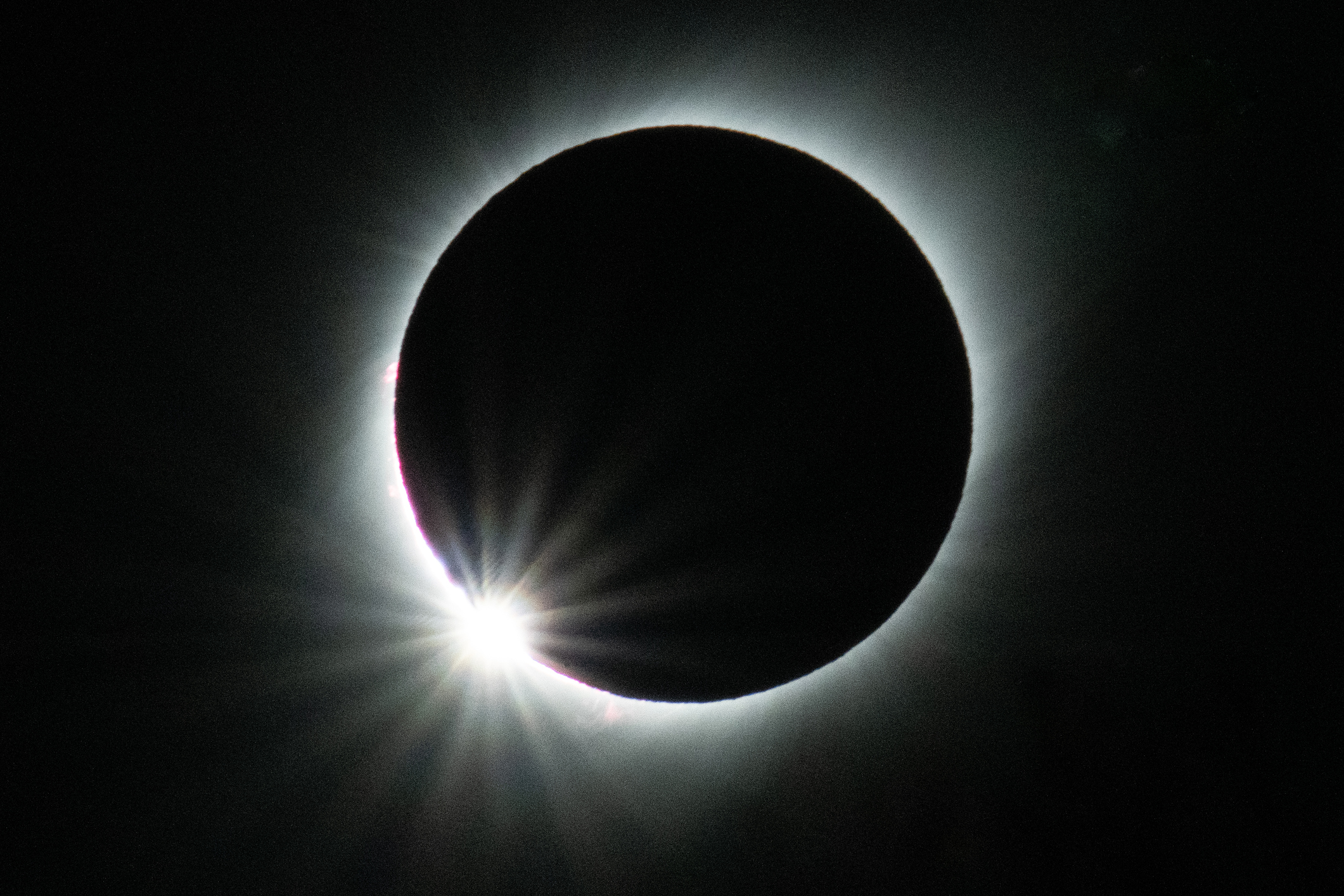13 states and dozens of cities are in the path of totality for the 2024 Total Solar Eclipse coming up on April 8, and countless other areas will be able to see some of it -- including parts of Chicago.
"A total solar eclipse happens when the Moon passes between the sun and the Earth, completely blocking the face of the Sun," NASA said.
The eclipse's path of totality will begin around 1 p.m. CT. The shadow of the moon will start out moving slow, across Texas, up through Arkansas and then southeastern Missouri, southern Illinois and into Indianapolis.
From there, it will travel through Ohio and up to the northeast, with 13 states in total appearing in the eclipse's path of totality.
Feeling out of the loop? We'll catch you up on the Chicago news you need to know. Sign up for the weekly Chicago Catch-Up newsletter here.
Here's a full interactive map of of the 2024 total solar eclipse
Carbondale, Illinois in 'path of totality'
The eclipse's "path of totality" will start in Southwest Texas and move northeast.
The path of totality includes the southern tip of Illinois, central and southern Indiana and Indianapolis. From there, it will race across Cleveland, Ohio; Buffalo, New York and into Maine.
"Southern Illinois is considered the eclipse crossroads of America because it was in the centerline for the path of totality in 2017 and will be again in 2024," according to the Illinois Department of Natural Resources.
The below map from the Adler Planetarium shows what the eclipse will look like in Illinois, with Carbondale, Mount Vernon, Metropolis and Mount Carmel among the southern Illinois cities in the path of totality.

According to the Illinois DNR, the full list of cities includes:
- Carbondale
- Makanda
- Alto Pass
- Fairfield
- Olney
- Golconda
- Effinggham
- Mt. Vernon
- Marion
The largest Illinois city in the path of totality is Carbondale.
"In downtown Carbondale the eclipse will begin moments before 2 p.m. and last for 4 minutes and 9 seconds, which is nearly double the length of time of the 2017 eclipse," the Illinois DNR reports.
There are also 31 state parks that will be in eclipse's path of totality.
What about Indiana?
In Indiana, the path of totality stretches from the southwest portion of the state across Indianapolis and up to the northeast.
Will it be visible from Chicago?
According to NBC 5 Meteorologist Kevin Jeanes, the eclipse will be "visible in some way from across the country."
In Chicago, however, only a partial eclipse will be seen.
Chicago and its surrounding suburbs will still experience an estimated 94% totality. That number is higher than the eclipse in 2017 and even higher than any partial eclipses expected in the near future.
When does the total eclipse begin?
Around 12:30 p.m. on April 8, the eclipse enter the country and begin moving into Southwest Texas.
From Chicago, parts of it will begin at 12:51 p.m., Jeanes said. The peak time to see it here will be around 2:07 p.m., he added.
"It's going to move slowly to begin with, and the shadow will pick up some forward speed," Jeanes said.
By 3:22 p.m., it will move out of the area.
Will I need glasses?
Yes.
"You must have glasses from Chicago, or you can make a pin hole box to view it," Jeanes said. That's because it's not safe to look at from a vantage point outside the path of totality.
"We cannot look at the sun when not its the total eclipse," Jeanes stressed.
An article from Travel + Leisure magazine agrees, citing the American Astronomical Society.
"The American Astronomical Society recommends you wear solar eclipse glasses at all times while viewing a solar eclipse," the article said. "If you are not in the path of totality, you will only ever see the partial eclipse, so it's crucial you keep your eclipse sunglasses on at all times to avoid eye damage."
According to the Adler Planetarium, viewing the solar eclipse without glasses can result in irreversible eye damage within seconds, and as your eyes lack the nerve endings to register pain as it's occurring, it'll be too late by the time you know.
When is the next time a total solar eclipse will occur?
The next total solar eclipse in the United States is set to place Aug. 12, 2045.
The next total solar eclipse with Chicago in a path of totality isn't until Aug. 4, 2111, Jeanes said.




